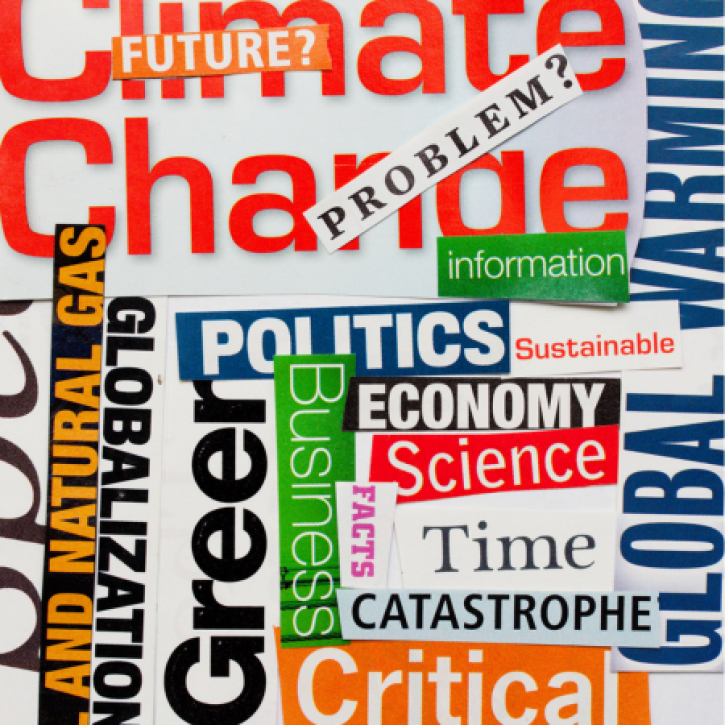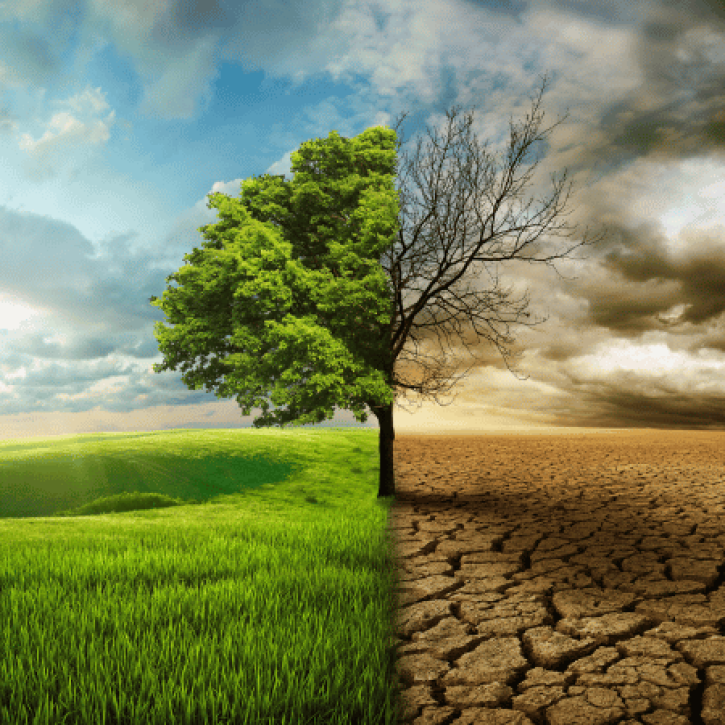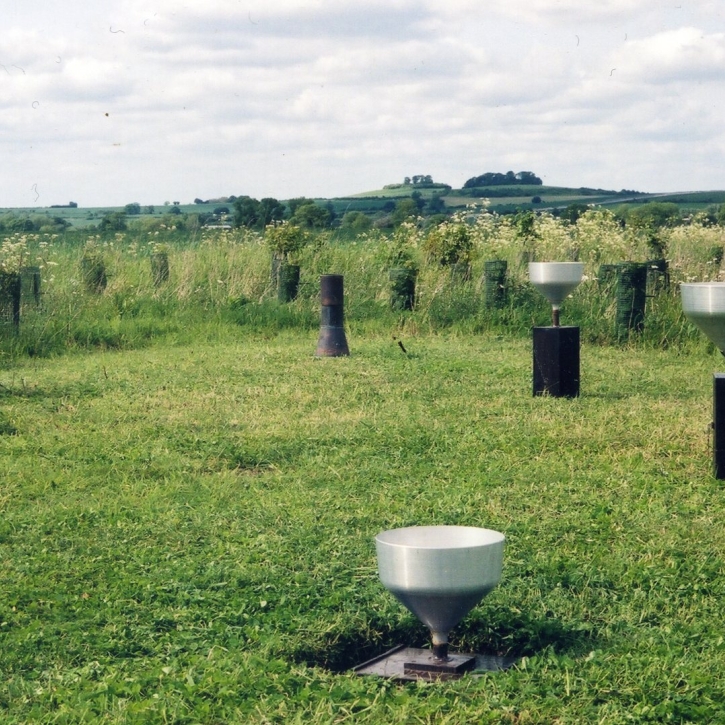

Climate Change Impacts on the Arctic, Antarctic and High Mountain Glaciers
LOCATION
Virtual - Hosted on Zoom
Climate change is having rapid and dramatic impacts on glacier ice and snow on ice sheets and global mountain glaciers. In the Arctic, the Greenland Ice Sheet is experiencing increased summer melt, and we are witnessing a great increase in ice discharged into the ocean. The Arctic sea ice extent is decreasing, exposing more dark ocean water which absorbs heat and amplifies warming. In the Antarctic, we are seeing rapid changes in the floating ice shelves that surround the continent, which are thinning and have increased surface melt, as well as recent sea-ice minima. The great outlet glaciers that drain the Antarctic Ice Sheet are also shrinking, driving global sea level rise. In the Himalaya and the Andes mountain ranges, hundreds of millions of people depend on glaciers for water, for irrigation, industry and domestic consumption. As the glaciers here shrink, they will provide less water for downstream populations, providing more tension in an already water-stressed region. Himalayan glaciers are frequently covered in rock debris, making their response to climatic changes highly non-linear and difficult to predict. Working at high-elevation is challenging but if models projecting future glacier change in the region are to be considered robust, the collection of field data is essential. This event will bring together experts in ice at the North and South Pole and at the world’s highest mountains for exciting talks and an engaging panel discussion in order to explore climate change at the world’s highest, most northern and most southerly points.
Speakers
Prof. James Lea
Biography: Professor James Lea is a glaciologist at the University of Liverpool. He works to understand how the Greenland Ice Sheet responds to climate change on timescales of seconds to millennia using a combination of fieldwork, satellite remote sensing and numerical simulations. He also advocates for greater inclusion and diversity within the polar science research community through the Polar Pride initiative.
Dr Ella Gilbert, BAS
Biography: Ella is a climate scientist at the British Antarctic Survey / PolarRES, exploring how the Arctic and Antarctic climates may change in response to climate change. She researches atmospheric processes and phenomena like clouds, wind patterns and the surface energy balance, as well as how the atmosphere interacts with ice sheets and ice shelves.
Prof. Mike Bentley, Durham
Biography: Mike Bentley is a Professor of Polar Geoscience in the Department of Geography, Durham University. Most of his research focusses on the Antarctic ice sheet and using innovative techniques to understand its past history over timescales of decades to millennia. Mike has undertaken 16 Antarctic field seasons as well as some prolonged research projects in the High Arctic. In aggregate Mike has spent more than 2 years in the polar regions, much of it leading teams based in small tented camps. He chairs the UK National Committee on Antarctic Research and is a UK delegate to the international Scientific Committee on Antarctic Research. Mike was awarded the Polar Medal in 2011.
Dr Sihan Li, Sheffield
Biography: Dr Sihan Li is a lecturer in Climate Science in the Department of Geography at Sheffield University. Sihan is a climate scientist specialising in using regional climate modelling and hydrological modelling to understand regional climate change and climate change impacts on extreme weather events (droughts, heatwaves, floodings, wildfires, etc.), and natural disasters (landslides due to earthquakes and heavy rainfalls). Sihan has focused on modelling regional response to anthropogenic warming in complex terrains,the changing characteristics of extreme events, and the implications for water availability.
She is especially interested in working collaboratively with other scientists across disciplines, with local partners/non-governmental organisations and humanitarian aid agencies, to plan for future disasters and reducing the consequent impacts through incorporating science-based risk information in contingency planning and emergency response preparedness planning.
Her most recent work focuses on i) high mountain regions over the Andes to assess the sensitivity of water resource availability in glacierized catchments to the changing supplies of snow and ice in response to climate change; ii) over the Himalayas to study monsoon rainfall and earth surface processes leading to landslides; and iii) and a recently started project focused on the Antarctic, to study the changing characteristics and drivers of Antarctic extreme weather events, disentangle the roles of human influence and natural climate variability in changes to these extreme events and their drivers, and to use this knowledge to predict future events and their impacts on Antarctic climate and ice.
Dr Hamish Pritchard, BAS
Biography: I have worked as a glaciologist for the British Antarctic Survey since 2003. I focus on mapping, measuring and understanding ice sheets, glaciers and snowfall, with the aim of helping predict how our cryosphere will change in the future as the climate warms and how this will impact our supply of fresh water and the rate of sea level rise. I work with data from satellites, airborne surveys and field measurements in Antarctica, the Arctic, Alps, Himalayas and Rocky Mountains. I served as a lead author of the IPCC Special Report on the Ocean and Cryosphere in a Changing Climate, led the Bedmap Himalayas project to survey glacier thickness near Everest, and was awarded the 2023 Harry Otten prize for Innovation in Meteorology for developing a novel way to measure snowfall. I currently lead the NERC ‘Big Thaw’ project that is working to boost the skill of mountain water resource models, spanning weather, snowpack, glaciers and stream runoff.
James Jansen, FCO, London
Biography: James is the UK’s Senior Arctic Lead and Deputy Head of the Polar Regions Department in the Foreign, Commonwealth and Development Office. He leads UK engagement in the Arctic including delivery of the UK’s Arctic Policy Framework. With a background in biological sciences, James has spent most of the past 20 years working for the UK Government, with a focus on climate and the environment. Previously he was part of the UK team negotiating the UN Sustainable Development Goals before becoming Chief Executive of the Government of South Georgia & the South Sandwich Islands in the sub-Antarctic, one of the UK’s most remote and biodiverse Overseas Territories. Most recently has was leading UK international nature, climate and development programmes and supported the UK’s COP26 Presidency. James is a Fellow of the Royal Geographical Society.
Registration
REGISTRATION IS NOW CLOSED
Registration for this event is closed.
If you have any queries with regards to this event or require any further information please contact us at meetings@rmets.org.
We take data privacy seriously. Please read the RMetS privacy policy to find out more.
Resources
Climate change is having rapid and dramatic impacts on glacier ice and snow on ice sheets and global mountain glaciers. In the Arctic, the Greenland Ice Sheet is experiencing increased summer melt, and we are witnessing a great increase in ice discharged into the ocean. The Arctic sea ice extent is decreasing, exposing more dark ocean water which absorbs heat and amplifies warming. In the Antarctic, we are seeing rapid changes in the floating ice shelves that surround the continent, which are thinning and have increased surface melt, as well as recent sea-ice minima. The great outlet glaciers that drain the Antarctic Ice Sheet are also shrinking, driving global sea level rise. In the Himalaya and the Andes mountain ranges, hundreds of millions of people depend on glaciers for water, for irrigation, industry and domestic consumption. As the glaciers here shrink, they will provide less water for downstream populations, providing more tension in an already water-stressed region. Himalayan glaciers are frequently covered in rock debris, making their response to climatic changes highly non-linear and difficult to predict. Working at high-elevation is challenging but if models projecting future glacier change in the region are to be considered robust, the collection of field data is essential. This event will bring together experts in ice at the North and South Pole and at the world’s highest mountains for exciting talks and an engaging panel discussion in order to explore climate change at the world’s highest, most northern and most southerly points.
Speakers
Prof. James Lea
Biography: Professor James Lea is a glaciologist at the University of Liverpool. He works to understand how the Greenland Ice Sheet responds to climate change on timescales of seconds to millennia using a combination of fieldwork, satellite remote sensing and numerical simulations. He also advocates for greater inclusion and diversity within the polar science research community through the Polar Pride initiative.
Dr Ella Gilbert, BAS
Biography: Ella is a climate scientist at the British Antarctic Survey / PolarRES, exploring how the Arctic and Antarctic climates may change in response to climate change. She researches atmospheric processes and phenomena like clouds, wind patterns and the surface energy balance, as well as how the atmosphere interacts with ice sheets and ice shelves.
Prof. Mike Bentley, Durham
Biography: Mike Bentley is a Professor of Polar Geoscience in the Department of Geography, Durham University. Most of his research focusses on the Antarctic ice sheet and using innovative techniques to understand its past history over timescales of decades to millennia. Mike has undertaken 16 Antarctic field seasons as well as some prolonged research projects in the High Arctic. In aggregate Mike has spent more than 2 years in the polar regions, much of it leading teams based in small tented camps. He chairs the UK National Committee on Antarctic Research and is a UK delegate to the international Scientific Committee on Antarctic Research. Mike was awarded the Polar Medal in 2011.
Dr Sihan Li, Sheffield
Biography: Dr Sihan Li is a lecturer in Climate Science in the Department of Geography at Sheffield University. Sihan is a climate scientist specialising in using regional climate modelling and hydrological modelling to understand regional climate change and climate change impacts on extreme weather events (droughts, heatwaves, floodings, wildfires, etc.), and natural disasters (landslides due to earthquakes and heavy rainfalls). Sihan has focused on modelling regional response to anthropogenic warming in complex terrains,the changing characteristics of extreme events, and the implications for water availability.
She is especially interested in working collaboratively with other scientists across disciplines, with local partners/non-governmental organisations and humanitarian aid agencies, to plan for future disasters and reducing the consequent impacts through incorporating science-based risk information in contingency planning and emergency response preparedness planning.
Her most recent work focuses on i) high mountain regions over the Andes to assess the sensitivity of water resource availability in glacierized catchments to the changing supplies of snow and ice in response to climate change; ii) over the Himalayas to study monsoon rainfall and earth surface processes leading to landslides; and iii) and a recently started project focused on the Antarctic, to study the changing characteristics and drivers of Antarctic extreme weather events, disentangle the roles of human influence and natural climate variability in changes to these extreme events and their drivers, and to use this knowledge to predict future events and their impacts on Antarctic climate and ice.
Dr Hamish Pritchard, BAS
Biography: I have worked as a glaciologist for the British Antarctic Survey since 2003. I focus on mapping, measuring and understanding ice sheets, glaciers and snowfall, with the aim of helping predict how our cryosphere will change in the future as the climate warms and how this will impact our supply of fresh water and the rate of sea level rise. I work with data from satellites, airborne surveys and field measurements in Antarctica, the Arctic, Alps, Himalayas and Rocky Mountains. I served as a lead author of the IPCC Special Report on the Ocean and Cryosphere in a Changing Climate, led the Bedmap Himalayas project to survey glacier thickness near Everest, and was awarded the 2023 Harry Otten prize for Innovation in Meteorology for developing a novel way to measure snowfall. I currently lead the NERC ‘Big Thaw’ project that is working to boost the skill of mountain water resource models, spanning weather, snowpack, glaciers and stream runoff.
James Jansen, FCO, London
Biography: James is the UK’s Senior Arctic Lead and Deputy Head of the Polar Regions Department in the Foreign, Commonwealth and Development Office. He leads UK engagement in the Arctic including delivery of the UK’s Arctic Policy Framework. With a background in biological sciences, James has spent most of the past 20 years working for the UK Government, with a focus on climate and the environment. Previously he was part of the UK team negotiating the UN Sustainable Development Goals before becoming Chief Executive of the Government of South Georgia & the South Sandwich Islands in the sub-Antarctic, one of the UK’s most remote and biodiverse Overseas Territories. Most recently has was leading UK international nature, climate and development programmes and supported the UK’s COP26 Presidency. James is a Fellow of the Royal Geographical Society.
Registration
REGISTRATION IS NOW CLOSED
Registration for this event is closed.
If you have any queries with regards to this event or require any further information please contact us at meetings@rmets.org.
We take data privacy seriously. Please read the RMetS privacy policy to find out more.





